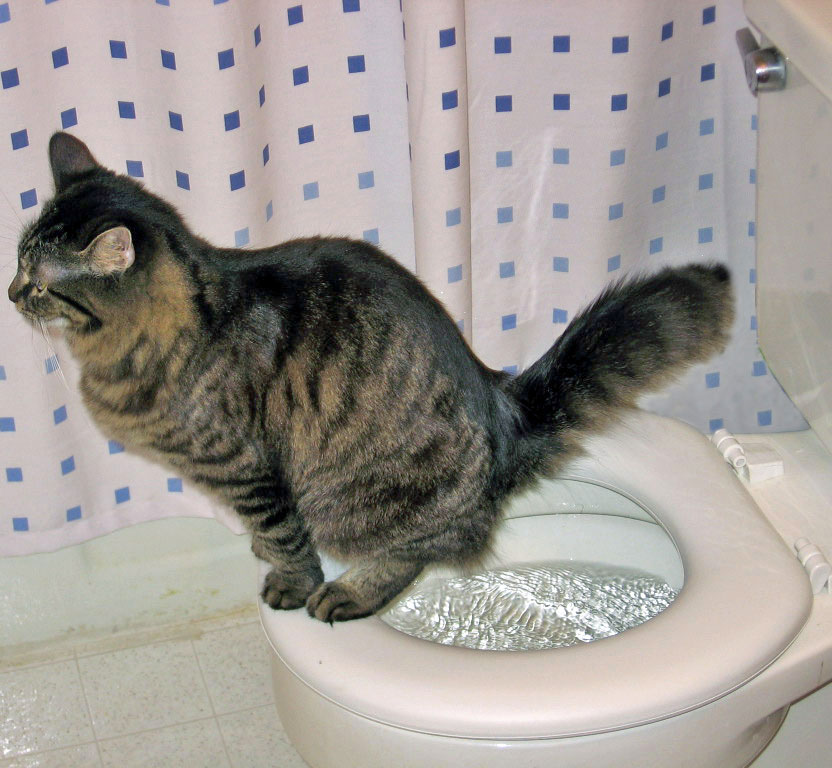Right here down the page you will find more incredibly good additional info regarding Can You Flush Cat Poop Down The Toilet?.

Intro
As cat proprietors, it's important to bear in mind just how we get rid of our feline friends' waste. While it might appear hassle-free to flush feline poop down the commode, this practice can have destructive repercussions for both the environment and human health.
Ecological Impact
Flushing cat poop introduces harmful microorganisms and parasites right into the water supply, posturing a significant threat to water ecological communities. These impurities can negatively affect aquatic life and concession water high quality.
Wellness Risks
Along with ecological worries, purging pet cat waste can additionally present wellness dangers to human beings. Pet cat feces may include Toxoplasma gondii, a bloodsucker that can create toxoplasmosis-- a potentially serious disease, particularly for expecting females and people with damaged immune systems.
Alternatives to Flushing
Luckily, there are more secure and extra liable ways to take care of feline poop. Consider the complying with options:
1. Scoop and Dispose in Trash
The most usual approach of taking care of pet cat poop is to scoop it right into a biodegradable bag and toss it in the garbage. Make sure to utilize a dedicated litter scoop and dispose of the waste without delay.
2. Usage Biodegradable Litter
Choose biodegradable feline litter made from materials such as corn or wheat. These trashes are eco-friendly and can be securely taken care of in the garbage.
3. Hide in the Yard
If you have a yard, take into consideration hiding feline waste in a designated location away from vegetable yards and water sources. Make sure to dig deep enough to stop contamination of groundwater.
4. Set Up a Pet Waste Disposal System
Buy a pet garbage disposal system specifically developed for cat waste. These systems utilize enzymes to break down the waste, minimizing odor and environmental influence.
Final thought
Liable pet dog possession expands beyond providing food and shelter-- it also includes appropriate waste administration. By refraining from purging feline poop down the bathroom and opting for different disposal methods, we can reduce our environmental footprint and secure human wellness.
Why Can’t I Flush Cat Poop?
It Spreads a Parasite
Cats are frequently infected with a parasite called toxoplasma gondii. The parasite causes an infection called toxoplasmosis. It is usually harmless to cats. The parasite only uses cat poop as a host for its eggs. Otherwise, the cat’s immune system usually keeps the infection at low enough levels to maintain its own health. But it does not stop the develop of eggs. These eggs are tiny and surprisingly tough. They may survive for a year before they begin to grow. But that’s the problem.
Our wastewater system is not designed to deal with toxoplasmosis eggs. Instead, most eggs will flush from your toilet into sewers and wastewater management plants. After the sewage is treated for many other harmful things in it, it is typically released into local rivers, lakes, or oceans. Here, the toxoplasmosis eggs can find new hosts, including starfish, crabs, otters, and many other wildlife. For many, this is a significant risk to their health. Toxoplasmosis can also end up infecting water sources that are important for agriculture, which means our deer, pigs, and sheep can get infected too.
Is There Risk to Humans?
There can be a risk to human life from flushing cat poop down the toilet. If you do so, the parasites from your cat’s poop can end up in shellfish, game animals, or livestock. If this meat is then served raw or undercooked, the people who eat it can get sick.
In fact, according to the CDC, 40 million people in the United States are infected with toxoplasma gondii. They get it from exposure to infected seafood, or from some kind of cat poop contamination, like drinking from a stream that is contaminated or touching anything that has come into contact with cat poop. That includes just cleaning a cat litter box.
Most people who get infected with these parasites will not develop any symptoms. However, for pregnant women or for those with compromised immune systems, the parasite can cause severe health problems.
How to Handle Cat Poop
The best way to handle cat poop is actually to clean the box more often. The eggs that the parasite sheds will not become active until one to five days after the cat poops. That means that if you clean daily, you’re much less likely to come into direct contact with infectious eggs.
That said, always dispose of cat poop in the garbage and not down the toilet. Wash your hands before and after you clean the litter box, and bring the bag of poop right outside to your garbage bins.
https://trenchlesssolutionsusa.com/why-cant-i-flush-cat-poop/

I have been very serious about How to Dispose of Cat Poop and Litter Without Plastic Bags and I really hope you enjoyed the new piece. Don't hesitate to take a moment to distribute this content if you appreciated it. Thanks so much for your time spent reading it.
Call